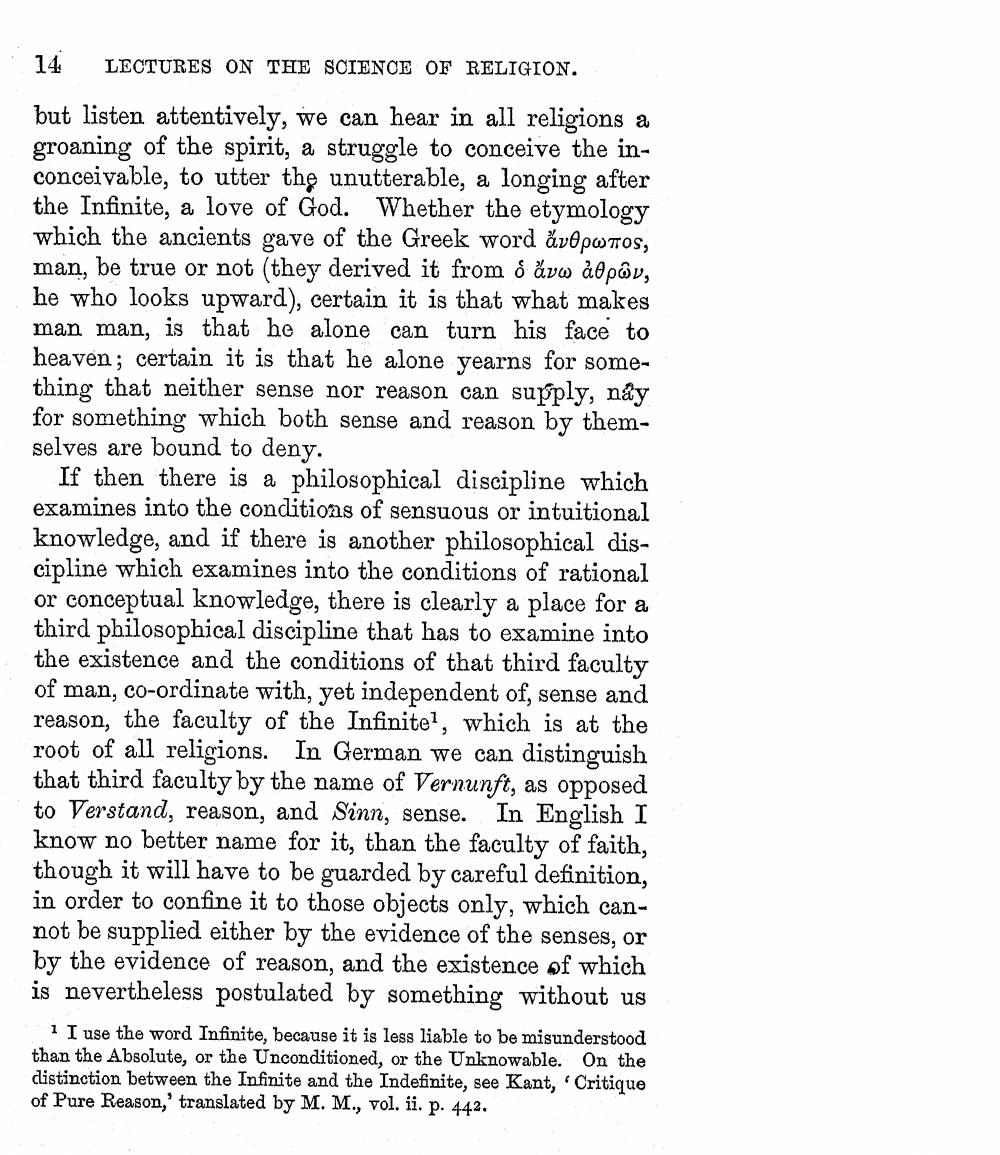________________
14 LECTURES ON THE SCIENCE OF RELIGION. but listen attentively, we can hear in all religions a groaning of the spirit, a struggle to conceive the inconceivable, to utter the unutterable, a longing after the Infinite, a love of God. Whether the etymology which the ancients gave of the Greek word άνθρωπος, man, be true or not (they derived it from o óvo à pôv, he who looks upward), certain it is that what makes man man, is that he alone can turn his face to heaven; certain it is that he alone yearns for something that neither sense nor reason can supply, náy for something which both sense and reason by themselves are bound to deny.
If then there is a philosophical discipline which examines into the conditions of sensuous or intuitional knowledge, and if there is another philosophical discipline which examines into the conditions of rational or conceptual knowledge, there is clearly a place for a third philosophical discipline that has to examine into the existence and the conditions of that third faculty of man, co-ordinate with, yet independent of, sense and reason, the faculty of the Infinitel, which is at the root of all religions. In German we can distinguish that third faculty by the name of Vernunft, as opposed to Verstand, reason, and Sinn, sense. In English I know no better name for it, than the faculty of faith, though it will have to be guarded by careful definition, in order to confine it to those objects only, which cannot be supplied either by the evidence of the senses, or by the evidence of reason, and the existence of which is nevertheless postulated by something without us
1 I use the word Infinite, because it is less liable to be misunderstood than the Absolute, or the Unconditioned, or the Unknowable. On the distinction between the Infinite and the Indefinite, see Kant, Critique of Pure Reason, translated by M. M., vol. ii. p. 442.




